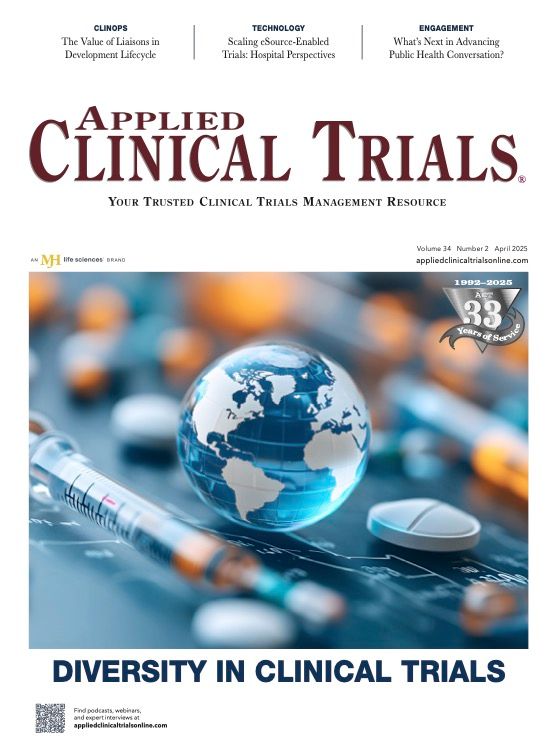Benchmarking Risks Across Therapeutic Areas
Study uncovers insights on the impact on safety, patient enrollment/retention, and compliance.

The monitoring of key risk indicators (KRIs) is an established form of risk control in the conduct of clinical trials. It is widely acknowledged that acceptable thresholds for KRIs vary by therapeutic area. However, the unavailability of benchmark data can limit the robustness of mitigations built into protocol and monitoring plans, in accordance with ICH E6 (R3).
We analyzed metrics from 746 studies to derive benchmarks. These were across five common KRIs (adverse events, serious adverse events, screen failure, early termination, and data entry delays) across five therapeutic areas for which we had data from a minimum of 50 studies. For each study and KRI, results were aggregated across one or multiple timepoints into a median study-level result.
In Table 1 at bottom, it appears clearly that therapeutic area has a fair impact and influence on those KRIs. For example, an average 0.7 adverse events are reported during each patient visit in oncology trials, while only 0.07 adverse events per patient visits are reported in infection and respiratory track diseases trials.
KRIs are often monitored for site or regional outliers within a study, based on expected range and/or statistical analysis. This benchmark data provides therapeutic area specificity to the setting of ranges for the most common KRIs. It will be most useful for small studies with minimal scope for statistical outlier detection and for organizations with limited therapeutic area-specific benchmark data of their own.
For studies where thresholds were not set using these benchmarks, study teams may periodically review study KRIs performance against this benchmark to identify any misalignments for further investigation.
These benchmark data provide a useful starting point for study teams to leverage existing data to apply meaningful risk controls. This will ensure execution of monitoring activities in the spirit of the ICH E6 (R3) guideline.

Sylviane de Viron, Data and Knowledge Manager; Sas Maheswaran, Vice President, Strategic Consulting; and Ken McFarlane, Vice President, Strategic Consulting; all with CluePoints

Newsletter
Stay current in clinical research with Applied Clinical Trials, providing expert insights, regulatory updates, and practical strategies for successful clinical trial design and execution.
Managing Side Effects and Dosing in Off-Label GLP-1 Use with Help from Real-World Evidence
July 18th 2025Shipra Patel, global therapeutic area section head, endocrinology, global head, pediatrics, Parexel, explains how real-world data is helping researchers navigate gastrointestinal side effects, dose flexibility, and long-term tolerability in off-label GLP-1 use.
Unifying Industry to Better Understand GCP Guidance
May 7th 2025In this episode of the Applied Clinical Trials Podcast, David Nickerson, head of clinical quality management at EMD Serono; and Arlene Lee, director of product management, data quality & risk management solutions at Medidata, discuss the newest ICH E6(R3) GCP guidelines as well as how TransCelerate and ACRO have partnered to help stakeholders better acclimate to these guidelines.
Effect of AI/ML, Real World Evidence and Master Protocols on Trial Success
July 7th 2025How the application of artificial intelligence, broader use of real-world evidence, decentralized clinical trials, master protocols, and risk-based quality monitoring, together with strong ethical oversight and increased collaboration, are contributing to better healthcare delivery and strengthening the role of clinical research in driving global health progress.